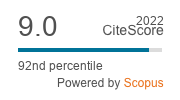Commensal skin microbiota plays an important role in both influencing the immune response of the skin and acting as a barrier against colonisation of potentially pathogenic microorganisms and overgrowth of opportunistic pathogens. Staphylococcus epidermidis is a key constituent of the normal microbiota on human skin. It balances the inflammatory response after skin injury and produces antimicrobial molecules that selectively inhibit skin pathogens. Here we describe Lactobacillus brevis DSM17250 that was identified among hundreds of Lactobacillus strains to exhibit an anti-inflammatory effect in human keratinocytes in vitro and specific stimulatory impact on the growth of S. epidermidis. The aqueous cell-free extract of L. brevis DSM17250 was used in an ointment formulation and tested in a randomized placebo-controlled double blinded human pilot study. Healthy volunteers with diagnosed dry skin were treated for four weeks. The study data shows that L. brevis DSM17250 extract induces re-colonisation of the skin by protective commensal microorganisms as judged from selective bacterial cultivation of surface-associated skin microorganism of the lower leg. Furthermore, the 4 week administration of the L. brevis DSM17250 extract significantly improved the transepidermal water loss value (TEWL), reduced the xerosis cutis symptoms and stinging. The data shows that daily application of L. brevis DSM17250 extract in a topical product significantly improves the microbial skin microbiota by promoting the growth of species which possess beneficial regulatory and protective properties such as S. epidermidis. Restoring the natural skin microbiota leads to significantly improved skin barrier function (as transepidermal water loss) and decrease of xeroderma (xerosis cutis) symptoms (as measured by dry skin area and severity index, DASI). We propose that improving and stabilizing the natural skin microbiota by specifically stimulating the growth of S. epidermidis is an important and novel concept to manage skin diseases associated with microbiota dysbiosis.
RESEARCH ARTICLE
Novel bioactive from Lactobacillus brevis DSM17250 to stimulate the growth of Staphylococcus epidermidis: a pilot study
C. Holz Related information
1Organobalance GmbH, Gustav-Meyer-Allee 25, 13355 Berlin, Germany.
, J. Benning Related information1Organobalance GmbH, Gustav-Meyer-Allee 25, 13355 Berlin, Germany.
, M. Schaudt Related information2Analyse & Realize GmbH, Waldseeweg 6, 13467 Berlin, Germany.
3PRA health Sciences, Gottlieb-Daimler-Straβe 10, 68165 Mannheim, Germany.
, A. Heilmann Related information3PRA health Sciences, Gottlieb-Daimler-Straβe 10, 68165 Mannheim, Germany.
1Organobalance GmbH, Gustav-Meyer-Allee 25, 13355 Berlin, Germany.
, J. Schultchen Related information1Organobalance GmbH, Gustav-Meyer-Allee 25, 13355 Berlin, Germany.
, D. Goelling Related information1Organobalance GmbH, Gustav-Meyer-Allee 25, 13355 Berlin, Germany.
, C. Lang Related informationBeneficial Microbes: 8
(1)- Pages: 121 - 131

Published Online: November 08, 2016
Abstract
2022 Journal Impact Factor
5.4
source: Journal Impact Factor 2023™ from Clarivate™

Institutional Offers
For institutional orders, please contact [email protected].
-
A.A. Hibberd, C.C. Yde, M.L. Ziegler, A.H. Honoré, M.T. Saarinen, S. Lahtinen, B. Stahl, H.M. Jensen and L.K. Stenman
-
E.E. Blaak, E.E. Canfora, S. Theis, G. Frost, A.K. Groen, G. Mithieux, A. Nauta, K. Scott, B. Stahl, J. van Harsselaar, R. van Tol, E.E. Vaughan and K. Verbeke
-
K. Venema, J. Verhoeven, C. Beckman and D. Keller
-
E. Arvidsson Nordström, C. Teixeira, C. Montelius, B. Jeppsson and N. Larsson
-
J.E. Haarhuis, A. Kardinaal and G.A.M. Kortman
-
E.E. Blaak, E.E. Canfora, S. Theis, G. Frost, A.K. Groen, G. Mithieux, A. Nauta, K. Scott, B. Stahl, J. van Harsselaar, R. van Tol, E.E. Vaughan and K. Verbeke
-
K. Lippert, L. Kedenko, L. Antonielli, I. Kedenko, C. Gemeier, M. Leitner, A. Kautzky-Willer, B. Paulweber and E. Hackl
-
K. Tsilingiri and M. Rescigno
-
M. Ozen and E.C. Dinleyici
-
Y. Kobayashi, T. Kuhara, M. Oki and J.-Z. Xiao



